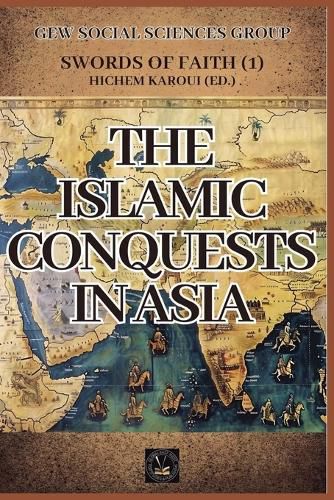The Islamic Conquests in Asia
Gew Social Sciences Group

The Islamic Conquests in Asia
Gew Social Sciences Group
This title is printed to order. This book may have been self-published. If so, we cannot guarantee the quality of the content. In the main most books will have gone through the editing process however some may not. We therefore suggest that you be aware of this before ordering this book. If in doubt check either the author or publisher’s details as we are unable to accept any returns unless they are faulty. Please contact us if you have any questions.
The driving idea behind this study is to provide a comprehensive and holistic understanding of the Islamic conquests in Asia by examining the diverse factors that drove the expansion. This includes exploring the religious, economic, political, and military dimensions of the conquests and their impact on the region's political, social, and cultural landscape. The study aims to integrate these various aspects to offer a nuanced perspective on the significance and legacy of Islamic expansions, addressing gaps and fragmentation in previous research. - The research background of this book focuses on the rapid and transformative Islamic conquests in Asia, which began in the 7th century and significantly altered the region's political, social, and cultural landscape.
Past methods of studying these conquests often lacked a comprehensive approach that integrated the diverse factors driving the expansion. Previous studies may have been fragmented or overly focused on specific regions without considering the broader context. This study is well-motivated as it aims to provide a holistic understanding of the conquests by examining various dimensions such as religion, economics, politics, and military strategies.
The research methodology proposed in this paper involves a detailed historical analysis of the Islamic conquests across different regions in Asia, including Persia, the Indian subcontinent, Southeast Asia, and China. It examines the geopolitical conditions, responses of local societies, key military figures, and long-term consequences of Islamic rule.
The tasks achieved by the methods in this book include providing a nuanced understanding of the Islamic conquests' impact on Asia's political landscape and drawing lessons for contemporary geopolitical dynamics. The performance of this comprehensive analysis supports the goals of offering a deeper insight into the historical significance and legacy of the Islamic expansions.
Methods
Detailed examination of geopolitical conditions in regions like Persia, India, Southeast Asia, and China;
Analysis of the responses from local empires and societies to the Islamic conquests;
Identification and discussion of notable military commanders and their strategies;
Exploration of the long-term consequences of Islamic rule in the conquered regions;
Integration of religious, economic, and political factors driving the conquests.
Conclusion:
The significance of this piece of work lies in its comprehensive approach to understanding the Islamic conquests in Asia, highlighting the multifaceted drivers behind the expansion and its lasting impact on the region.
Innovation point: The book provides an integrated analysis of various factors influencing the Islamic conquests, offering a more holistic view than previous studies.
Performance: The detailed historical analysis effectively supports the study's goals of elucidating the conquests' impact and legacy.
Workload: The extensive examination of multiple regions and factors indicates a significant research effort and thoroughness.
This item is not currently in-stock. It can be ordered online and is expected to ship in 7-14 days
Our stock data is updated periodically, and availability may change throughout the day for in-demand items. Please call the relevant shop for the most current stock information. Prices are subject to change without notice.
Sign in or become a Readings Member to add this title to a wishlist.


